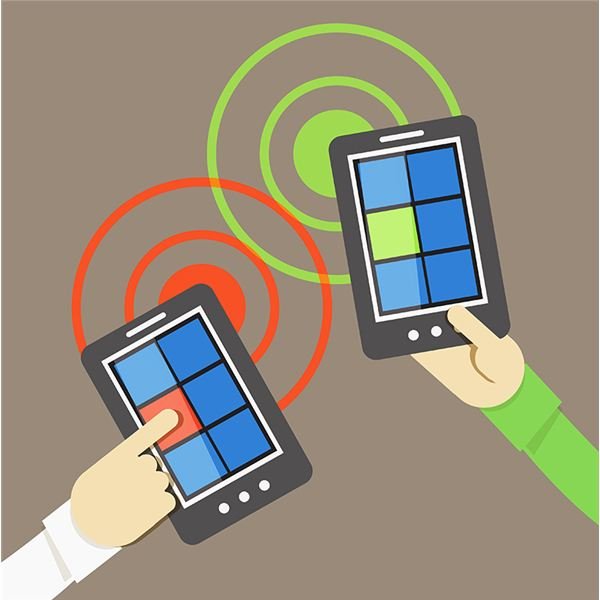Monitoring Student Social Media Usage: Violence Prevention or Invasion of Privacy?
The district hopes to prevent bullying, depression, suicide, violence and drug activity. Geo Listening describes its mission this way:
Geo Listening’s service processes, analyzes, and reports only publicly available data that aligns with school district procedures and board policy related to student conduct and safety. The Geo Listening system takes into account frequency and severity of a student’s posts that include indicators relating to bullying, cyber-bullying, hate and shaming activities, depression, harm and self harm, self hate and suicide, crime, vandalism, substance abuse, and truancy.
Geo Listening does not circumvent any personal privacy settings on the platforms where it indexes content. The Geo Listening Services are intended solely to collect and process publicly available information.
What Are They Looking For?
Geo Listening monitors only public posts on Facebook, Twitter, Instagram and other media sources. They cannot access private posts. They search for various key words. Their analysts then read and view content that is flagged. The company produces a daily report of suspicious activity for the schools.
They are looking for warning signs of suicidal behavior, the simmering of potential violence, and evidence of bullying, hate speech, drugs and weapons. They point the district to possible trouble and allow the administrators to deal with it. Geo Listening is a tool to help schools enforce their code of conduct.
Geo Listening’s founder Chris Frydrych doesn’t go into specifics about exactly how his firm does what it does. Likely he doesn’t want to reveal his industry secrets to the competition. However, he points out that the humans who read flagged material are limited to four hours a day because the content can be quite dark and emotionally draining.
Has There Been Success?
Frydrych states that on the first day of school, a female student posted from campus that she was sad. They looked back at her online activity and found her talking about being bullied and almost getting into fights. She stated that this year was starting out just like the others, with bullying. They alerted an administrator who paid special attention to her.
On other occasions, Geo Listening has tipped off school mental health providers to students repeatedly speaking of sadness and a desire to end it all. The district was able to intervene.
In another case, they intercepted the plans for an off-campus fight. Students were posting pictures of themselves with weapons. The district stepped in and prevented a brawl.
Keep It Private

Geo Listening can only view public postings. “If our service gets kids to privatize their pages,” Frydrych says, “that’s all a positive for our kids and our society.” Words and images posted publicly to social media are public property. Any perceived ownership or privacy is mythical. If students restrict their posting to their circles of contacts, Geo Listening will be blind.
This is a good lesson for the future, where perhaps nothing occurring outside your home will go unrecorded. Potential employers will judge you based upon your online presence. Your school will be scanning your communications for signs of policy violations. Keeping yourself to yourself has become an essential 21st century skill. Put nothing publicly online you don’t want the whole world to view.
How Does It Work?
The trouble is, Geo Listening is not revealing its methods. It does hint at hunting for key words and then using human monitors to judge the severity of the content. After the daily report is submitted to the schools, it is up to another set of humans to interpret the information. Context and tone are difficult things to sense in online communication.
A commenter on one of the resource articles said he had been denied access to prom after joking about “getting wasted” on Facebook. Arriving at the dance quite sober, he was still rejected based on words on a screen.
Geo Listening also hasn’t fully decided how to use its power. They have not determined how long they will retain data on 13,000 students. They could potentially end up with a full library of communication for every student and keep it for years. The company has not decided when they will delete such information.
Geo Listening has not revealed how they know posts are coming from or involving actual Glendale USD students.
Too Far Already?
Communication is changing. Young people speak digitally to each other in ways impossible for parents and teachers to fully observe. Scarcely ever are students chastised for speaking in class. They don’t pass paper notes anymore, either. But they do spill large amounts of personal information onto the web. Danger signs may not be seen or heard by old-fashioned methods.
The government, including public schools, will be monitoring public movement and communication in the name of safety. How the information is used will be up to individual humans. No doubt, some will choose to misuse it while others will do the right thing. Some will no doubt misinterpret what they see and hear, making a big deal out of innocuous details and missing the big picture.
Another concern is about school district priorities. Is spending over forty thousand on a listening service helping to educate children? At this point, we haven’t gathered enough information. Glendale is an experiment. Will suicide, violence and bullying be prevented? It’s difficult to quantify what doesn’t occur. Also, Geo Listening can only prove it’s a bad idea. If its mission continues on quietly, is it working or are they just lucky?
Frydrych’s simple advice to privatize all your social media pages is wise. Also, know that whenever you post something online, you’re telling everyone. If you don’t want your boss, your mother, your principal and your enemy to know, don’t share.
References
- Michael Martinez, “California school district hires firm to monitor students’ social media,” CNN, September 18, 2013, http://www.cnn.com/2013/09/14/us/california-schools-monitor-social-media/
- Sharing via mobile devices, PhotoSpin
- “Bullies Beware: Schools Hire Social Media Monitors,” Here & Now, December 9, 2013, http://hereandnow.wbur.org/2013/12/09/online-bullying-monitor
- Cyrus Farivar, “California school district hires online monitoring firm to watch 13,000 students,” Ars Technica, September 16, 2013, http://arstechnica.com/tech-policy/2013/09/california-school-district-hires-online-monitoring-firm-to-watch-13000-students/
- Girl on laptop, PhotoSpin
